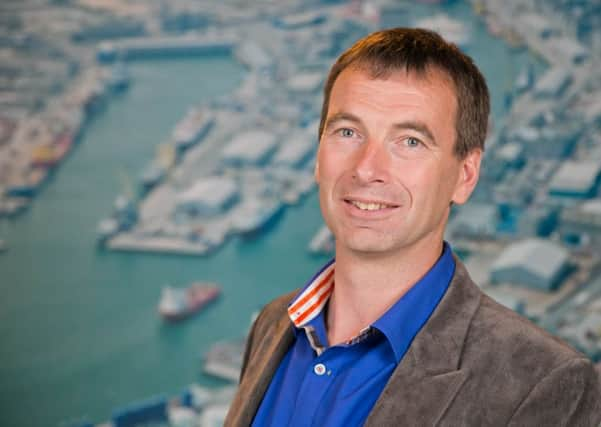Oil companies now too 'risk averse' to embrace new technology


Dan Purkis, co-founder of Well-SENSE Technology, has spent 20 years devising kit for the industry with several pieces of his well technology now used by firms including Halliburton and BP.
He said he had saved companies millions of pounds but they were now too “risk averse” to embrace the technology that could make significant cuts to costs.
Advertisement
Hide AdAdvertisement
Hide AdMr Purkis’ latest device is modelled on a 40-year-old military wire-guided missile which has been adapted for oil well “interventions” that determine whether old wells can be re-opened.
He claims his Fibre Line Intervention, which can fit in a briefcase, could conduct the analysis at a price far below that of the current equipment which is typically made up of a 15,000 feet of copper wire on a giant spool.
Mr Purkis said: “We started working on this idea last June. We were really excited, We put this business case together and we went to visit everybody. And the feedback was fantastic, they thought it was great, it would work, they said ‘we can’t see any barriers, it’s low risk’.
“It is now nine months later. We are still speaking to the same people, they still have the same enthusiasm. But we have deployed nothing.”
Mr Purkis said he had recently been invited to Houston by one operator to do a free trial.
“That just doesn’t work for a small, innovative company like us,” he said.
Mr Purkis, who has one other colleague at Well-SENSE, also has a day job designing tools for an oil firm.
Speaking at the Industry Technology Facilitator (ITF) technology showcase in Aberdeen this week, he said: “I have a day job as I need to earn a living. Most innovators innovate off-line, they do it in the jacuzzi, in the shower, while driving home in the rush hour.
Advertisement
Hide AdAdvertisement
Hide AdHe added: “I am just a little guy right at the bottom, trying to bring new technology in and trying to tell people about the exciting things that could be done if we had support.”
“Getting technology is adopted is really difficult. Everyone is risk adverse, but we are at the greatest risk. It is us who loses our jobs first. Its our money at risk.”
Colette Cohen, senior vice president of Centrica UK and Netherlands, said to Mr Purkis at the event it was the operators who were taking the risks.
“We are putting it in our well. Its the reputational risk, the risk of loss of well. That is much larger, unfortunately, whether you go without a job or not. Our well is for us is more important. That is where the biggest challenge comes from.”